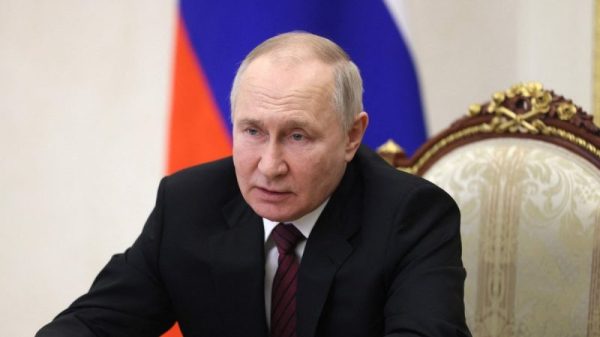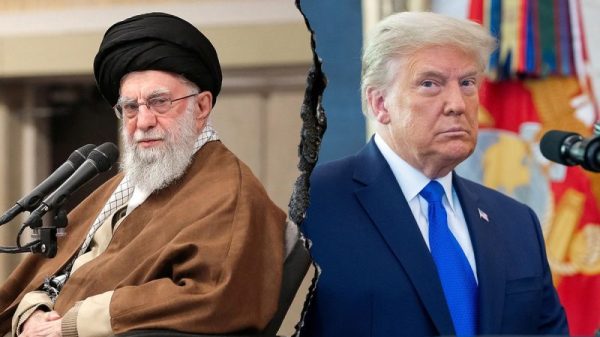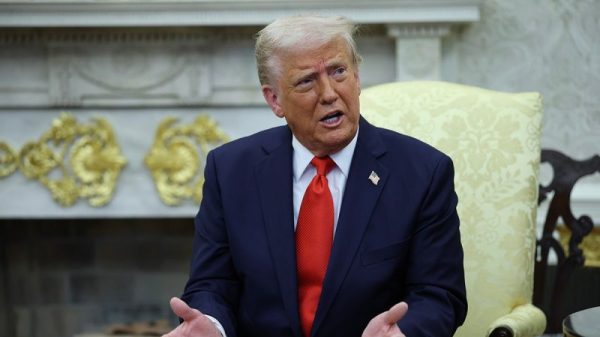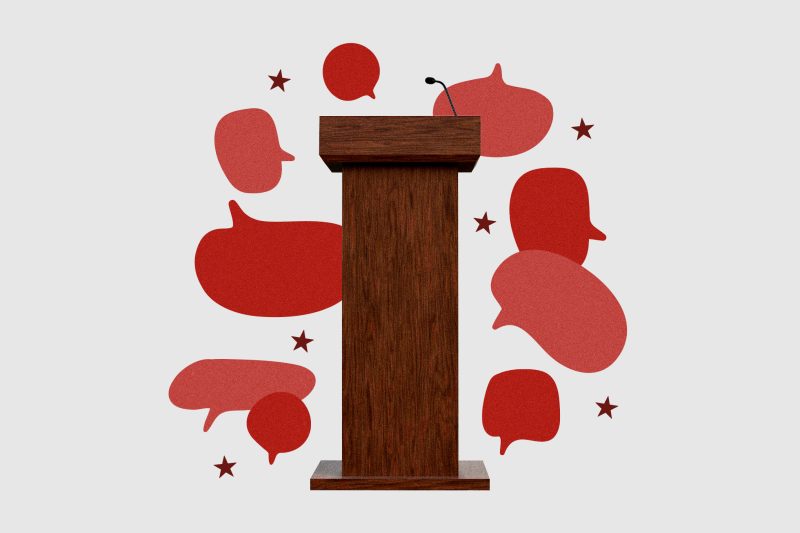Seven Republican candidates for president faced off at the second presidential debate of the 2024 election Wednesday night in Simi Valley, Calif. Again absent was the GOP’s runaway front-runner, former president Donald Trump.
The first debate seemed to put businessman Vivek Ramaswamy on the map for many voters, but former South Carolina governor Nikki Haley appeared to gather the most momentum from it. None of them, however, is close to within striking distance of depriving Trump of a third straight GOP presidential nomination.
2024 presidential election
End of carousel
Below are some winners and losers from the second debate.
The strength of Haley’s initial debate performance was dealing directly with issues and looking like a serious candidate who could appeal to all parts of the party. And while she may have had a bit less impact on Wednesday night than she did in the first debate, she mostly did it again.
After multiple candidates failed to directly answer questions about the United Auto Workers strike, Haley invoked what others probably wish they had: the impact of inflation on the workers.
She later gave one of the most substantive answers on health care. On that question and others, she looked less like she was pandering and punting on questions than the other candidates did.
And by the end, her performance had something all candidates strive for: the promise of a viral moment. She told Ramaswamy, after a tough question about his posture on TikTok, that, “Honestly, every time I hear you, I feel a little bit dumber for what you say.”
Haley was derailed a little bit toward the end when she seemed a bit too eager to go after Sen. Tim Scott (S.C.), and then Scott came back at her in an exchange that devolved into a shouting match. The South Carolina-on-South Carolina tension was real. But if the best her opponents have to work with is an old story about $50,000 worth of curtains at the State Department (Haley was absolved), she’s probably in good shape.
Haley gained the most from the first debate by being a studied candidate who demonstrated broad appeal — by not alienating Trump-backing voters. She probably maintained that advantage and inched closer to possibly one day replacing Florida Gov. Ron DeSantis as the leading, actually somewhat viable, Trump alternative.
Okay, maybe this one’s unoriginal. But the debate was more of a nonevent than the first one, and Trump’s decision to skip these affairs is increasingly being vindicated, strategically at least.
While candidates took some early digs, that faded as the evening wore on. The candidates also talked over one another so much — and the Fox Business moderators struggled to reel them in — that it robbed the debate of any real flow.
It was almost as if this was mostly a bunch of candidates in the single digits struggling to get noticed by an electorate that is by and large not interested in the choices they are trying to provide.
After two debates, it has become clear that about the only thing that’s going to change this race is Trump’s personal problems suddenly overtaking him in a way little current evidence suggests they will.
And these debates are mostly about being there to pick up the pieces in the unlikely event that happens — to become the front-runner of the also-rans.
It’s true that Republicans have largely given up their old quest to get rid of the increasingly popular health-care law. But Wednesday night brought a striking moment.
When former vice president Mike Pence was repeatedly asked whether he still wanted to repeal the law — as he and Trump promised but failed to do — he repeatedly punted.
He at first talked about mass shootings and pivoted to attacking DeSantis (one of multiple instances in which he did that after avoiding a question).
Then he was asked again, and he punted again, pivoting to an attack on Trump for wanting to “consolidate more power in the executive branch.”
Pence, in the end, merely said that all Obamacare funding would be handled by the states. That’s a far cry from where past GOP debates have landed, when there was arguably no bigger pledge than repealing the law.
The candidates were still loath to criticize Trump for much. But one thing even DeSantis was willing to hit him on — albeit by effectively repeating what former New Jersey governor Chris Christie had just said — was Trump skipping debates.
“Donald Trump — he hides behind the walls of his golf clubs, and won’t show up here to answer questions like all the rest of us are up here to answer,” Christie said. “He put 7 trillion on the debt, and he should be in the room to answer these questions.”
DeSantis quickly cut in and, somewhat awkwardly, repeated the talking point.
“You know who else is missing in action? Donald Trump is missing in action,” DeSantis said. “He should be on this stage tonight. He owes it to you to defend his record where they added 7.8 trillion to the debt that set the stage for the inflation that we have.”
Christie later said he would soon be calling Trump “Donald Duck.”
The fact that the candidates were reduced to goading Trump to debate was a reflection of the race. The candidates need something to pierce Trump’s armor, and his refusal to debate is not helping. Republican voters are increasingly okay with Trump skipping debates. So they at least have to try to lure him to come back.
But by the end, the Trump campaign’s response was simply to call for future debates to be canceled.
“The [Republican National Committee] should immediately put an end to any further primary debates so we can train our fire on Crooked Joe Biden and quit wasting time and money that could be going to evicting Biden from the White House,” the Trump campaign said.
A DeSantis ally remarked to Semafor before the debate, “If he doesn’t do well here, in my opinion, he’s gotta drop out — if he doesn’t want to be embarrassed.”
He didn’t do particularly well. But more than that, there was nothing that seemed likely to arrest his backsliding.
DeSantis’s contribution was a lot of Florida talk, which his campaign once suggested it was weaning itself from. It was the unoriginal attempted dig at Trump so shortly after Christie said much of the same thing. It was his continually awkward mannerisms.
His campaign at one point complained about the lack of time he was being given, but he didn’t use the time he had well. It was also symptomatic of his increasingly becoming a nonentity in the race.
No, it’s not like comprehensive immigration reform was going anywhere any time soon. But the debate showed how any GOP moderation on immigration might be more distant than at any point in decades.
Asked about comprehensive reform, even the more establishment-oriented candidates such as Christie and Haley deflected, saying the country should focus solely on securing the border.
At one point the immigration debate turned to Ramaswamy’s (somewhat fanciful) idea to revoke birthright citizenship for the children of illegal immigrants — and even deport the citizen children of undocumented immigrants. The question was soon turned over to Scott because he had expressed a different view. But Scott opted not to litigate the issue, instead leaning into the idea that the 14th Amendment was meant to address slavery rather than undocumented immigrants — thus suggesting it was actually something of an open legal question.
Finally, Pence was asked about what he would do for dreamers, didn’t answer, was asked again, and attacked DeSantis instead.
The takeaway: The GOP has no time for anything but the border. And having even an establishment Republican entertaining the idea of revoking birthright citizenship — not just Ramaswamy or Trump, who has done it in the past — really drove home where the party is for the foreseeable future.


































